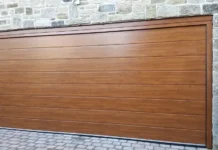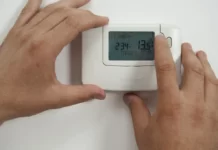Every do-it-yourself or DIY enthusiast must have an arsenal of power tools to efficiently perform home repair, renovation and restoration activities. Depending on what they’re made for, power tools like saws, drills, grinders, planers or compressors come in different capacities. They can also be corded or cordless.
With the long list of available choices, finding the best selection of power tools on the market can be highly challenging. There’s no easy answer to this, but understanding the upsides and downsides of each option can help you pick out the most suitable type based on your needs.
So, before shopping for your next equipment like Data power tools, read the article below to make the wiser choice. This blog will discuss several points of comparison between corded and cordless power tools and how each option stacks up.
Runtime
Corded power tools: One of the primary upsides of using corded power tools is that they can continue working until you need them. If you’re often doing home repairs for several hours wherein you don’t need to turn off the main power, this may be a better choice. As much as possible, look for a power tool with a long cord so that you can stay a few meters farther away from the electric outlet.
Cordless power tools: With these machines, you don’t have to rely on a direct power source as they come with batteries. Most portable power tools come in lithium-ion batteries because they don’t reduce the tool’s power even if the machines aren’t used regularly. These power sources are also lightweight and a must-have for cordless tools. If you often find yourself working a few hours on a project wherein you need to be moving all the time, as when doing DIY steel building, cordless power tools are recommended. Just have additional battery packs for lengthier runtime.
Power or Capacity
Corded power tools: Some power tools, particularly those used in industrial applications, are exclusively manufactured as corded machines. Corded drills pack more power than their cordless counterparts, and they’d be perfect for labor-intensive applications. These include drilling and cutting through hardened metal and thick hardwood pieces and working with metal and concrete.
Cordless power tools: While some power tool manufacturers have released high-capacity batteries, a portable power tool’s performance still can’t match the higher capacities of electric power tools. A cordless machine may conk out or malfunction when pushed too hard, primarily to protect its power source. If your DIY projects often involve cutting or drilling through hardened steel and hardwood, it’s best to own high-powered and corded pieces of equipment.
Safety
Corded power tools: Wired power tools need to be plugged into an electrical outlet to work. If working on the roof or anywhere far from the power sources, you’d need a portable generator or long extension wires to get them working. These items may become tripping hazards and cause other accidents such as electrocution.
Cordless power tools: With handheld power tools, you only need to carry extra batteries to extend the use, eliminating the need for bulky generators and hazardous wires. Cordless tools make perfect solutions for repairs that require you to climb up the roof or the attic where space could be an issue. They’re also better than their wired counterparts for overhead work, such as repairing the ceiling or installing windows.
Portability
Corded power tools: These machines are often heavier than their battery-operated counterparts. Suppose you have a project that you need to do more often. A portable power machine is better than a wired one. In addition, power cords often restrict your mobility, as you need to mind the wires and make sure they don’t get cut, such as in the case of power saws and angle grinders.
Cordless power tools: Wireless machines are more portable than their wired counterparts. Using these power tools won’t require you to plug into an external power source. You don’t need to set up extension wires and other backup electricity. They’re great when you need to work in tight spaces and on repair works wherein you need to be highly mobile.
Storage
Corded power tools: Electric-powered machines have to be stored properly to keep them working well. Owners must ensure that the wires are intact, and they may have to be stored individually and wrapped well to avoid the blades, pressure and other elements from damaging the cord. Some owners will have to make a customised tool rack or shelf to store these sensitive pieces.
Cordless power tools: On the contrary, it’s easier to keep these machines mainly because you don’t have to check the wires to make sure they’re not destroyed. Wireless saws, drills and other power tools can be placed in a drawer or tool shelves without any special considerations. However, you have to ensure that batteries are charged and discharged frequently to preserve their performance.
Maintenance
Corded power tools: These machines need to be taken care of by regularly cleaning and replacing damaged or overworked parts. Wiping clean and checking the device after every use is imperative. Regularly lubricating the moving parts with oil can also help lengthen their lifespan.
Cordless power tools: Maintaining cordless power tools isn’t much different from their corded counterparts, besides properly charging and discharging the batteries. You’d still have to clean them and check the parts for signs of potential damage, mainly chipped blades for saws, grinders and cutters.
Cost
Corded power tools: Wired power machines are often cheaper than wireless devices. That’s why most contractors may consider them the better choice. Besides extension wires and a portable generator, you don’t have to spend on a charger and additional batteries.
Cordless power tools: Besides being more expensive, battery-powered devices also require additional accessories, as mentioned above. If you want to own one, prepare to spend more, as costs can add up.
The Bottom Line
There’s no quick answer to whether it’s better to have a corded or cordless power tool. Arriving at an intelligent decision will depend on a few factors such as frequency and length of use, portability and maneuverability, convenience, costs and maintenance.
Corded machines are often the best choice for durability and higher capacity and torque. Meanwhile, cordless power tools are known for their ease of use and versatility, and most homeowners prefer to use them for smaller home projects. If you have enough cash to spend, it’s best to have both versions of your most often used power tool to get the job done efficiently.












